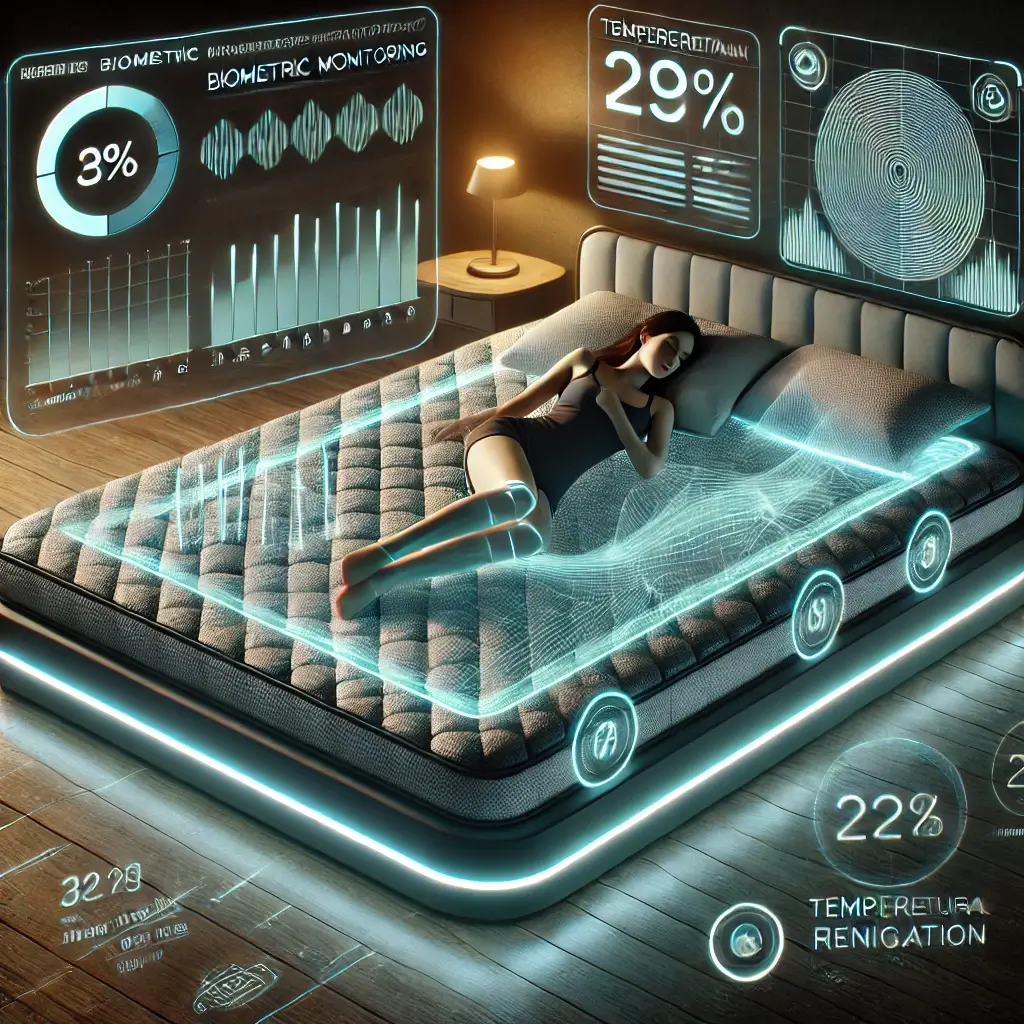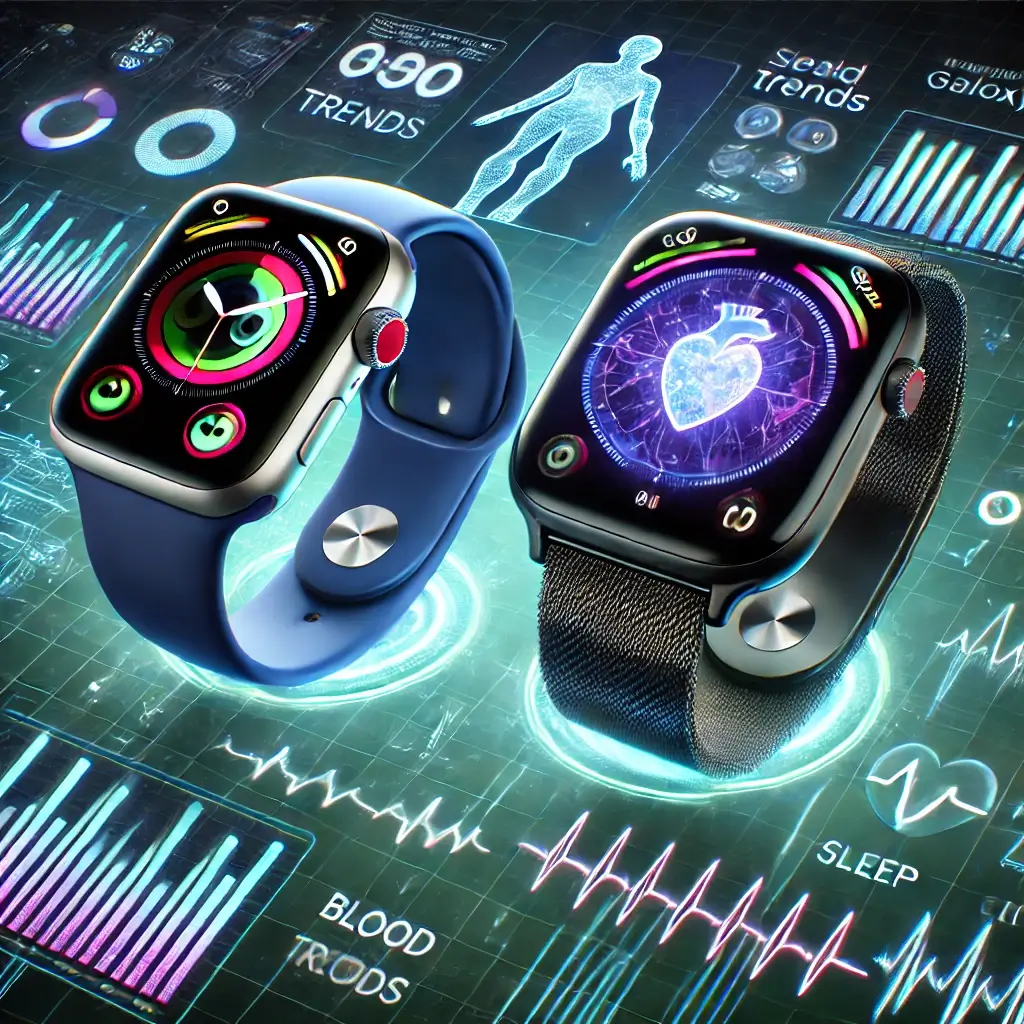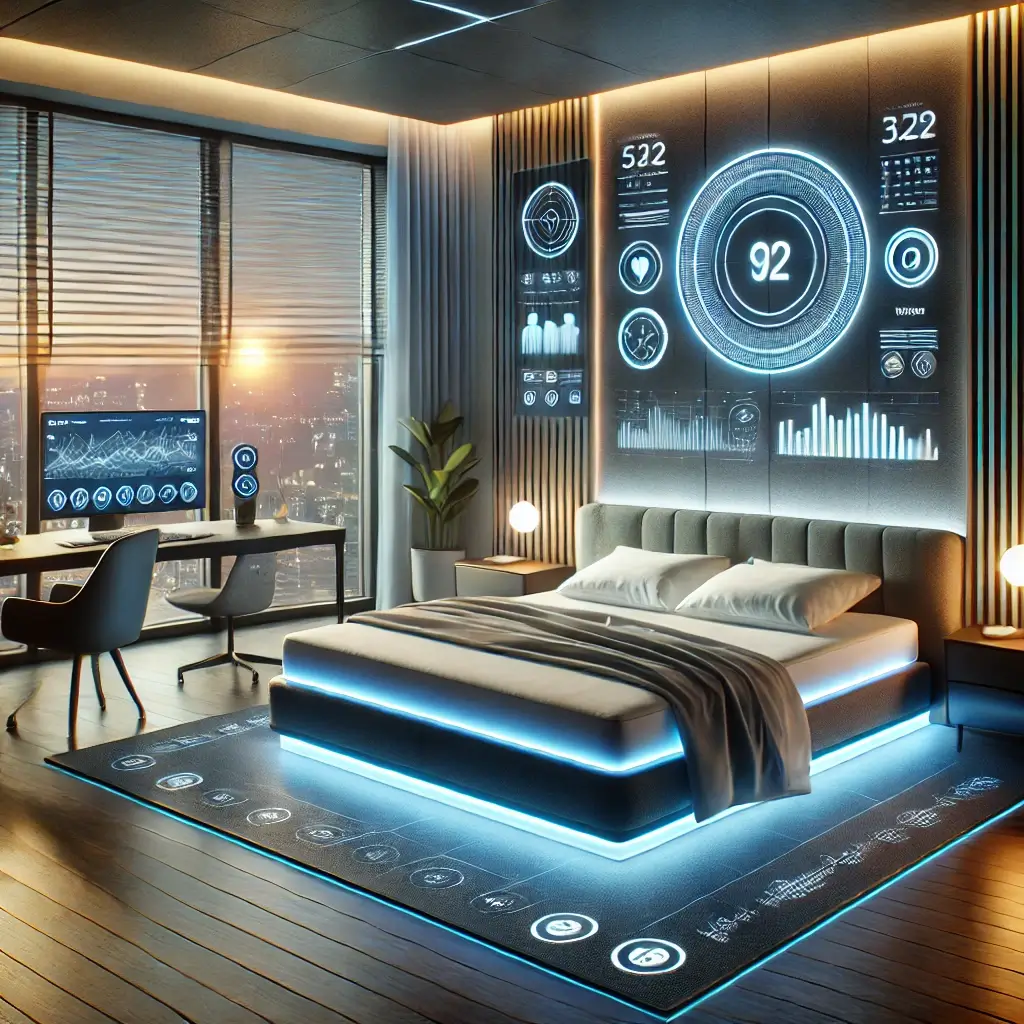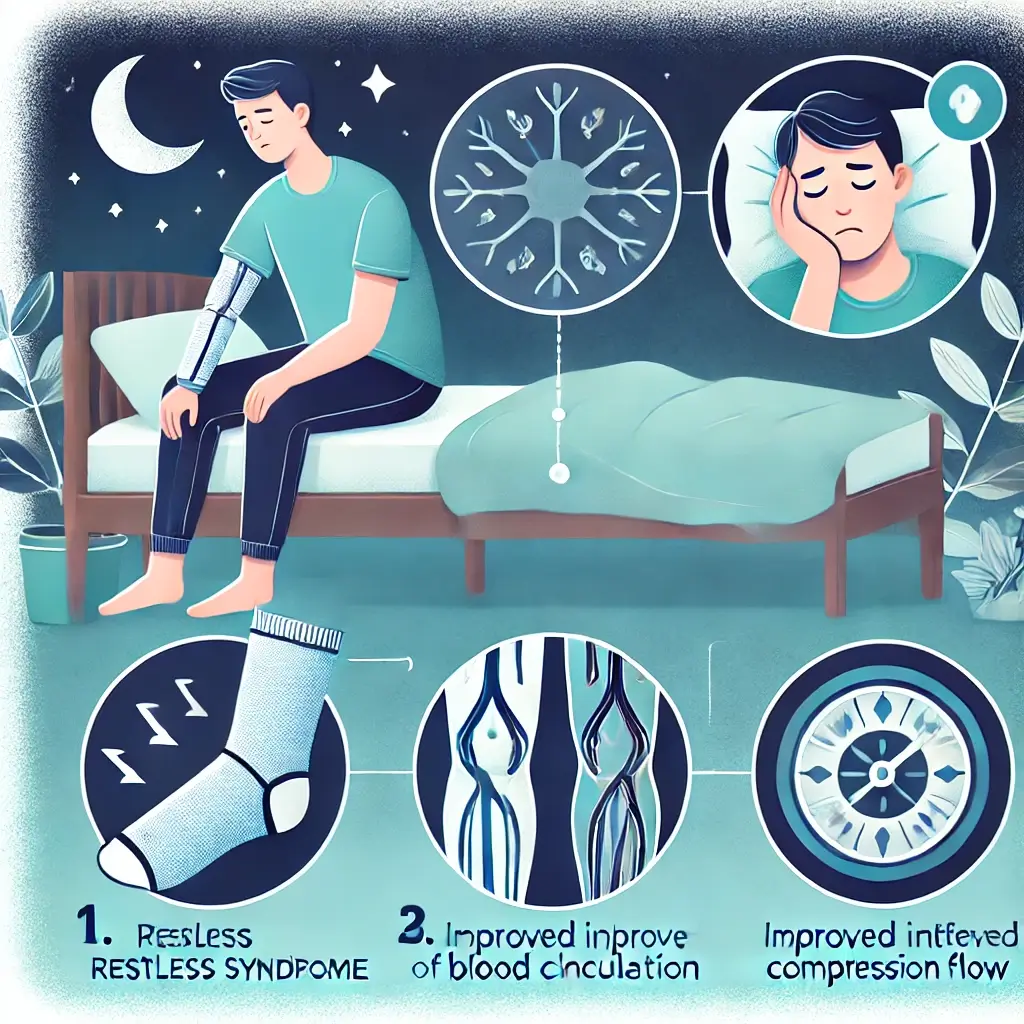Next-Generation Sleep Solutions: A Deep Dive into Smart Mattress Innovation
Understanding Modern Sleep Challenges
Sleep is not merely a passive activity; it is a critical component of health and well-being, affecting nearly every physiological and psychological process. However, modern life has introduced challenges that disrupt sleep patterns, from work stress to environmental noise. Traditional mattresses, while providing a comfortable surface, have not evolved to address these complexities. Enter smart mattresses—a revolutionary fusion of comfort and technology designed to transform the way we rest.
Advanced Features of Smart Mattresses
Smart mattresses go beyond conventional designs, incorporating advanced features like biometric monitoring, temperature regulation, and adaptive firmness adjustments. These innovations aim to create a sleep environment tailored to individual needs, promoting optimal rest and recovery. Additionally, the integration of these mattresses with smart home ecosystems allows for automated adjustments that enhance convenience and user experience.
The Role of Smart Mattresses in Health
As sleep science continues to emphasize the importance of high-quality sleep for physical and mental health, smart mattresses are emerging as an essential tool for addressing sleep challenges. By leveraging cutting-edge technology for sleep optimization, they promise to bridge the gap between comfort and health, offering solutions that were once unimaginable.
Research and Scientific Evidence
The scientific basis for smart mattresses lies in their ability to monitor and respond to sleep patterns dynamically. Research has demonstrated their potential to improve sleep outcomes. A 2019 study published in the Journal of Sleep Research examined the effects of a pressure-sensitive smart mattress on individuals with chronic back pain. The results showed significant improvements in sleep quality and reductions in pain levels, suggesting that targeted interventions via smart mattresses can address specific health issues (Åkerstedt et al., 2019).
Clinical Studies and Benefits
Similarly, a 2018 pilot study in Sleep Health investigated biofeedback-enabled smart mattresses in healthy adults. Participants reported enhanced sleep efficiency and reduced nocturnal disturbances, highlighting the technology’s capacity to optimize sleep quality (Johnstone et al., 2018). These findings, though promising, emphasize the need for larger-scale studies to confirm long-term benefits and efficacy.
Artificial Intelligence Integration
Recent innovations in the smart mattress industry have propelled their capabilities even further. AI integration for real-time sleep analysis has become a key focus, enabling real-time analysis and adjustments based on user data. For instance, AI-powered mattresses can identify trends in sleep patterns, such as interruptions caused by environmental factors or health conditions, and adapt firmness or support accordingly. These dynamic adjustments align with the principles of personalized medicine, making smart mattresses a valuable tool for individualized care.
Temperature Control and Monitoring Systems
Temperature regulation remains a significant advancement. Studies have shown that maintaining optimal sleep temperature for enhanced sleep depth reduces the time it takes to fall asleep (Okamoto-Mizuno & Mizuno, 2012). Modern smart mattresses use advanced thermal technologies to create a stable microclimate that supports uninterrupted rest. Moreover, 2024 saw the introduction of radar-based contactless monitoring systems for sleep tracking. Unlike traditional methods that rely on wearable devices, these systems use non-invasive technology to measure heart rate, respiratory patterns, and movement. This innovation improves accuracy and user comfort while paving the way for integration with telehealth platforms. By providing actionable insights, smart mattresses are becoming critical components of preventive healthcare.
Implementation Challenges
Despite their benefits, smart mattresses are not without limitations. One of the most significant barriers to widespread adoption is cost. Premium models often come with price tags that place them out of reach for many consumers. This creates a disparity in access, potentially limiting the technology’s impact on public health. Privacy concerns in smart mattress data collection also loom large. Smart mattresses collect extensive data on sleep behaviors and physiological metrics, raising questions about data security and ethical use. Manufacturers must prioritize robust encryption and transparent policies to build consumer trust and ensure compliance with data protection regulations.
Individual Variability and Research Needs
Another challenge is the variability of individual sleep needs. While smart mattresses offer personalization, their effectiveness can vary significantly from one user to another. Scientific validation through diverse and long-term studies is essential to address these concerns and enhance credibility.
Future Implications and Potential
Smart mattresses represent a paradigm shift in the way we approach sleep health. By integrating advanced technologies for personalized sleep solutions, they offer a personalized solution to common sleep challenges. Scientific research and industry innovation continue to validate their potential, with findings suggesting improvements in sleep quality and broader health benefits. However, barriers such as high costs and privacy concerns must be addressed to ensure equitable access and consumer confidence. As technology evolves and adoption increases, smart mattresses could transition from niche products to essential components of modern sleep hygiene. Ultimately, their ability to combine comfort with actionable health insights positions them as transformative tools in the pursuit of better rest and overall well-being.
References
Åkerstedt, T., Wright, K. P., Gillberg, M., & Ficca, G. M. (2019). Pressure mapping technology in a smart mattress intervention for chronic low back pain: A randomized controlled trial. Journal of Sleep Research, 28(2), e12767.
Johnstone, J. A., Kay, G., & Wantschek, C. (2018). Can a smart mattress improve sleep quality? A pilot study. Sleep Health, 4(3), 237-242.
Okamoto-Mizuno, K., & Mizuno, K. (2012). Effects of thermal environment on sleep and circadian rhythm. Journal of Physiological Anthropology, 31(1), 14.













